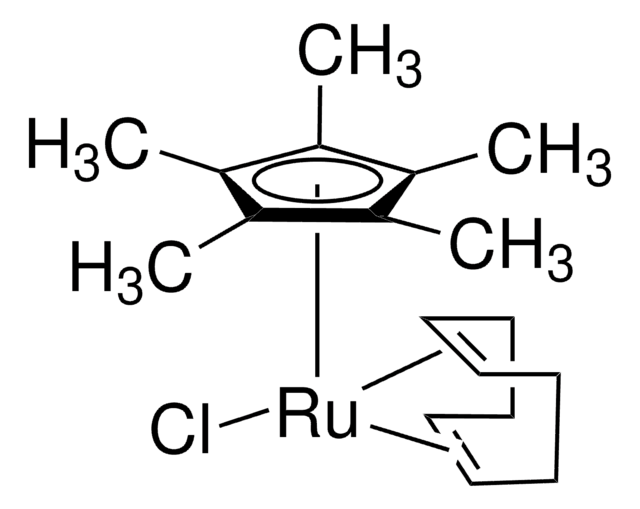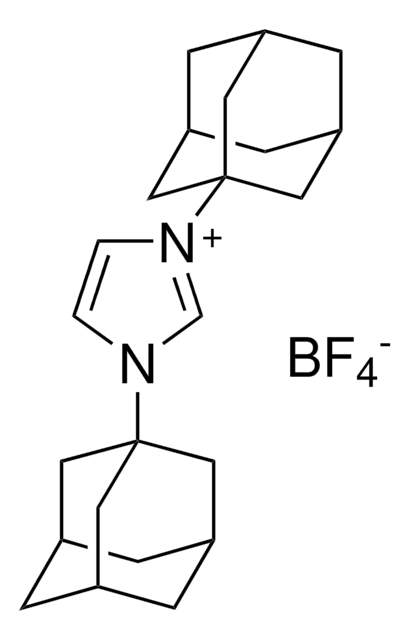904848
2-Chloro-1,3-bis(2,6-diisopropylphenyl)imidazolium chloride
≥95%
Sinónimos:
1,3-Bis(2,6-di-i-propylphenyl)-2-chloroimidazolium chloride, Chloroimidazolium chloride
About This Item
Productos recomendados
assay
≥95%
form
powder
functional group
chloro
SMILES string
[Cl+]=C1N(C=CN1c3c(cccc3C(C)C)C(C)C)c2c(cccc2C(C)C)C(C)C.[Cl-]
InChI
1S/C27H36ClN2.ClH/c1-17(2)21-11-9-12-22(18(3)4)25(21)29-15-16-30(27(29)28)26-23(19(5)6)13-10-14-24(26)20(7)8;/h9-20H,1-8H3;1H/q+1;/p-1
InChI key
JDMACANGISWEGX-UHFFFAOYSA-M
Application
Automate your fluorination reactions with Synple Automated Synthesis Platform (SYNPLE-SC002)
related product
Storage Class
11 - Combustible Solids
wgk_germany
WGK 3
flash_point_f
Not applicable
flash_point_c
Not applicable
Elija entre una de las versiones más recientes:
Certificados de análisis (COA)
¿No ve la versión correcta?
Si necesita una versión concreta, puede buscar un certificado específico por el número de lote.
¿Ya tiene este producto?
Encuentre la documentación para los productos que ha comprado recientemente en la Biblioteca de documentos.
Los clientes también vieron
Contenido relacionado
The Ritter lab currently focuses on fluorination chemistry for late-stage functionalization of complex natural and unnatural products. PhenoFluor™ has been developed as a general reagent for the selective, predictable, direct deoxyfluorination of complex alcohols and phenols.
Nuestro equipo de científicos tiene experiencia en todas las áreas de investigación: Ciencias de la vida, Ciencia de los materiales, Síntesis química, Cromatografía, Analítica y muchas otras.
Póngase en contacto con el Servicio técnico









